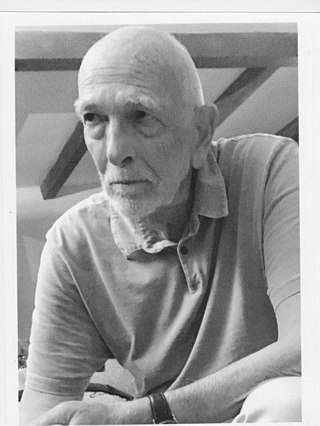
Peter Guy Winch was a British philosopher known for his contributions to the philosophy of social science, Wittgenstein scholarship, ethics, and the philosophy of religion. His early book The Idea of a Social Science and its Relation to Philosophy (1958) was an attack on positivism in the social sciences, drawing on the work of R. G. Collingwood and Ludwig Wittgenstein's later philosophy.
Arthur John Terence Dibben Wisdom, usually cited as John Wisdom, was a leading British philosopher considered to be an ordinary language philosopher, a philosopher of mind and a metaphysician. He was influenced by G.E. Moore, Ludwig Wittgenstein and Sigmund Freud, and in turn explained and extended their work.
Family resemblance is a philosophical idea made popular by Ludwig Wittgenstein, with the best known exposition given in his posthumously published book Philosophical Investigations (1953). It argues that things which could be thought to be connected by one essential common feature may in fact be connected by a series of overlapping similarities, where no one feature is common to all of the things. Games, which Wittgenstein used as an example to explain the notion, have become the paradigmatic example of a group that is related by family resemblances. It has been suggested that Wittgenstein picked up the idea and the term from Friedrich Nietzsche, who had been using it, as did many nineteenth century philologists, when discussing language families.

The University of Cambridge was the birthplace of the 'Analytic' School of Philosophy in the early 20th century. The department is located in the Raised Faculty Building on the Sidgwick Site and is part of the Cambridge School of Arts and Humanities. The Faculty achieved the best possible results from The Times 2004 and the QAA Subject Review 2001 (24/24). In the UK as of 2020, it is ranked second by the Guardian, second by the Philosophical Gourmet Report, and fifth by the QS World University Rankings.
John Michael David Coey, known as Michael Coey, is a Belfast-born experimental physicist working in the fields of magnetism and spintronics. He is an Emeritus professor at the Trinity College Dublin (TCD).
The Aristotelian Society for the Systematic Study of Philosophy, more generally known as the Aristotelian Society, is a philosophical society in London.

Stephan Körner, FBA was a British philosopher, who specialised in the work of Kant, the study of concepts, and in the philosophy of mathematics.
Thomas R. Baldwin is a British philosopher and has been a professor of philosophy at the University of York since 1995. He has written generally on 20th century analytic and Continental philosophy, as well as bioethics, the philosophy of language and of mind, particularly with regard to G. E. Moore, Maurice Merleau-Ponty, and Bertrand Russell.
John Joseph Haldane is a British philosopher, commentator and broadcaster. He is a former papal adviser to the Vatican. He is credited with coining the term 'analytical Thomism' and is himself a Thomist in the analytic tradition. Haldane is associated with The Veritas Forum and is the current chair of the Royal Institute of Philosophy.

Atsina, or Gros Ventre, is the ancestral language of the Gros Ventre people of what is today Montana, United States of America. The last fluent speaker died in 2007, though revitalization efforts are underway.
John Michael Elliott Hinton was a British philosopher. He was a lecturer at the University of Oxford from 1958 and a fellow of Worcester College, Oxford, from 1960. He was Cowling Visiting Professor at Carleton College in 1978-79. He was previously a lecturer at Victoria University College.
Royal Institute of Public Health merged in 2008 with the Royal Society for Health to form Royal Society for Public Health (RSPH).

John Renford Bambrough was a British philosopher. He was fellow of St John's College, Cambridge from 1950-1999, where he held the positions of Dean (1964–1979) and President (1979–1983).

Alice Crary is an American philosopher who currently holds the positions of University Distinguished Professor at the Graduate Faculty, The New School for Social Research in New York City and Visiting Fellow at Regent's Park College, University of Oxford, U.K..
Deborah Anne Swallow is a British educator, museum curator and academic. From 2004 to 2023, she was Märit Rausing Director of The Courtauld Institute of Art and its Gallery; she was its first female Director. She previously worked at the University of Cambridge and the Victoria and Albert Museum. Alongside education and curation, she is a proponent of the broadest possible appreciation of art and its histories, and a specialist in Indian art and anthropology.
Bambrough is a surname. Notable people with the surname include:

The Sovereignty of Good is a book of moral philosophy by Iris Murdoch. First published in 1970, it comprises three previously published papers, all of which were originally delivered as lectures. Murdoch argued against the prevailing consensus in moral philosophy, proposing instead a Platonist approach. The Sovereignty of Good is Murdoch's best known philosophy book.

Herbert Morris was an American philosopher, legal scholar, and literary critic, who spent his career at the University of California, Los Angeles.







